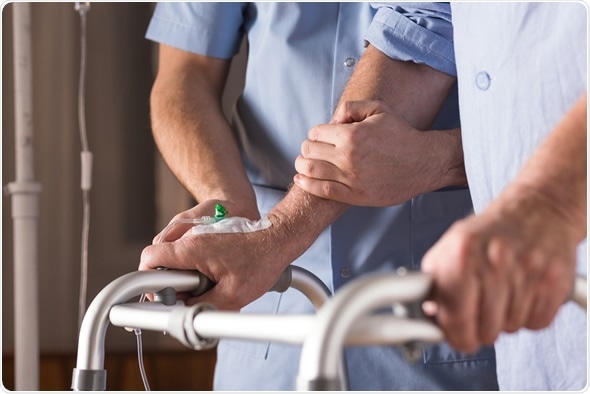The primary role of a nurse is to advocate and care for individuals and support them through health and illness. However, there are various other responsibilities of a nurse that form a part of the role of a nurse, including to:
- Record medical history and symptoms
- Collaborate with teams to plan for patient care
- Advocate for the health and wellbeing of patients
- Monitor patient health and record signs
- Administer medications and treatments
- Operate medical equipment
- Perform diagnostic tests
- Educate patients about management of illnesses
- Provide support and advice to patients

Patient care
A nurse is a caregiver for patients and helps to manage physical needs, prevent illness, and treat health conditions. To do this, they need to observe and monitor the patient, recording any relevant information to aid in treatment decision-making.
Throughout the treatment process, the nurse follows the progress of the patient and acts accordingly with the patient’s best interests in mind. The care provided by a nurse extends beyond the administration of medications and other therapies. They are responsible for the holistic care of patients, which encompasses the psychosocial, developmental, cultural, and spiritual needs of the individual.
Patient advocacy
The patient is the first priority of the nurse. The role of the nurse is to advocate for the best interests of the patient and to maintain the patient’s dignity throughout treatment and care. This may include making suggestions in the treatment plan of patients, in collaboration with other health professionals.
This is particularly important because patients who are unwell are often unable to comprehend medical situations and act as they usually would. It is the role of the nurse to support the patient and represent the patient's best interests at all times, especially when treatment decisions are being made.
Planning of care
A nurse is directly involved in the decision-making process for the treatment of patients. It is important that they are able to think critically when assessing patient signs and identifying potential problems so that they can make the appropriate recommendations and actions.
As other health professionals, such as doctors or specialists, are usually in charge of making the final treatment decisions, nurses should be able to communicate information regarding patient health effectively. Nurses are the most familiar with the individual patient situation as they monitor their signs and symptoms on an ongoing basis and should collaborate with other members of the medical team to promote the best patient health outcomes.
Patient Education and Support
Nurses are also responsible for ensuring that patients are able to understand their health, illnesses, medications, and treatments to the best of their ability. This is of the essence when patients are discharged from hospital and need to take control of their own treatments.
A nurse should take the time to explain to the patient and their family or caregiver what to do and what to expect when they leave the hospital or medical clinic. They should also make sure that the patient feels supported and knows where to seek additional information.
References
- https://collegegrad.com/careers/registered-nurses
- http://www.nhsemployers.org/~/media/Employers/Publications/The_role_of_the_nurse_discussion_paper.pdf
- https://www.nasn.org/PolicyAdvocacy/PositionPapersandReports/NASNPositionStatementsFullView/tabid/462/ArticleId/87/Role-of-the-School-Nurse-Revised-2011
- http://www.nursingworld.org/EspeciallyForYou/What-is-Nursing/Tools-You-Need/RNsAPNs.html
- http://study.com/academy/lesson/roles-and-functions-of-the-nurse.html
Further Reading
- All Nursing Content
- Nursing Profession
- Nursing Healthcare Profession
- Nursing Specializations
- Neonatal Nursing
Last Updated: Jan 21, 2021

Written by
Yolanda Smith
Yolanda graduated with a Bachelor of Pharmacy at the University of South Australia and has experience working in both Australia and Italy. She is passionate about how medicine, diet and lifestyle affect our health and enjoys helping people understand this. In her spare time she loves to explore the world and learn about new cultures and languages.
Source: Read Full Article
